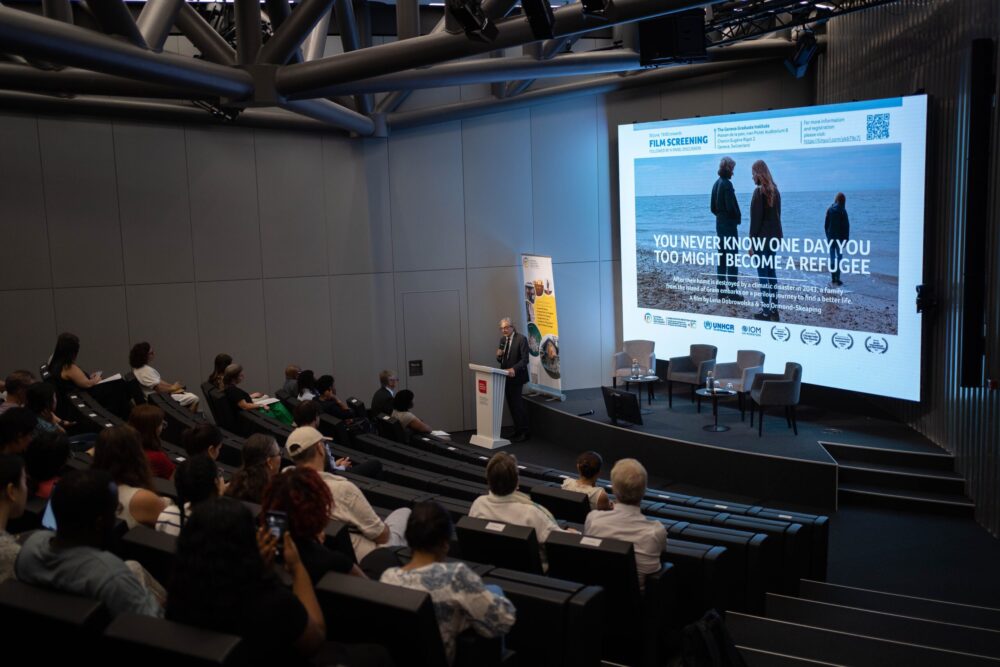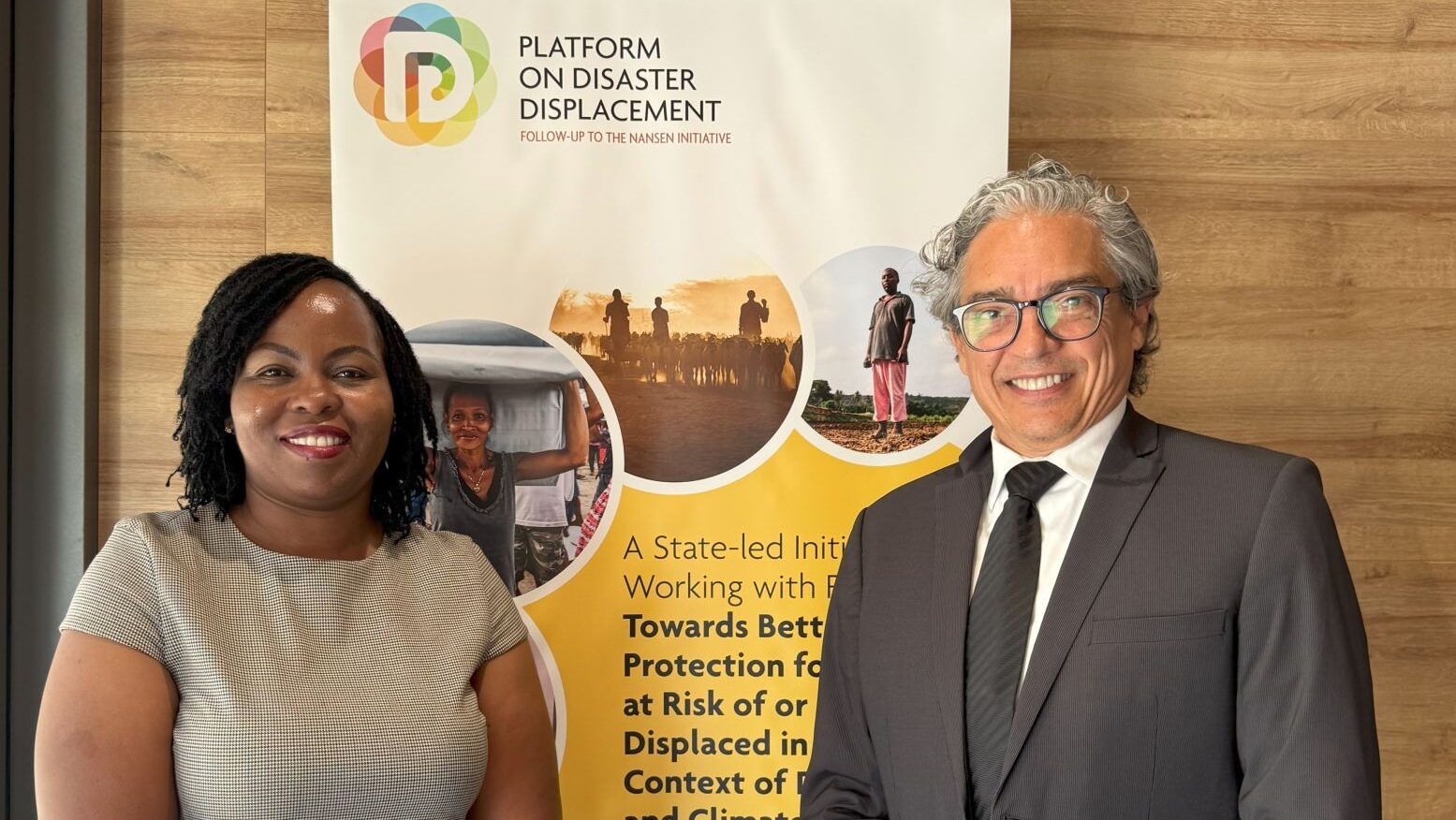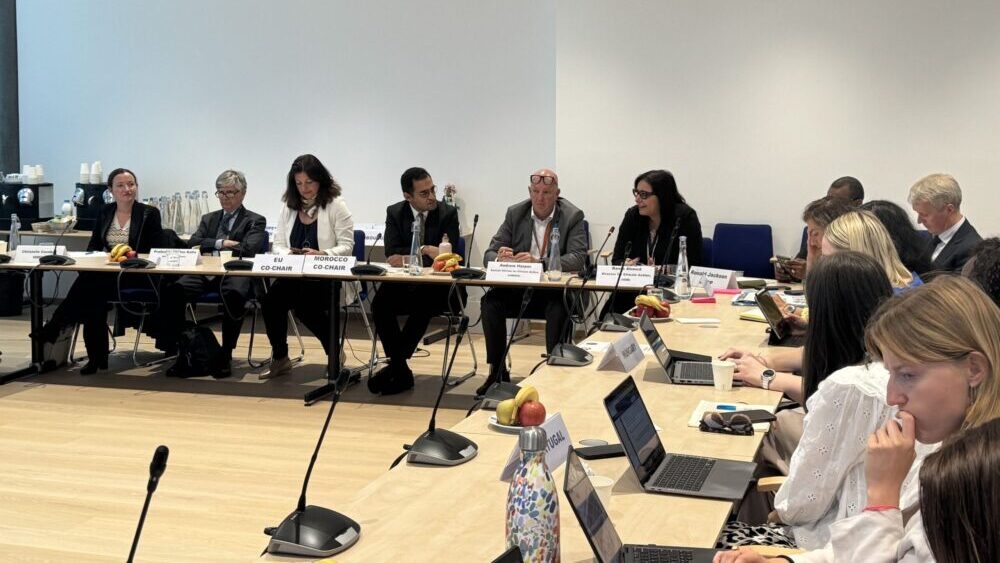Uganda and Kenya Conclude Simulation Exercise on Managing Cross-Border Disaster Displacement
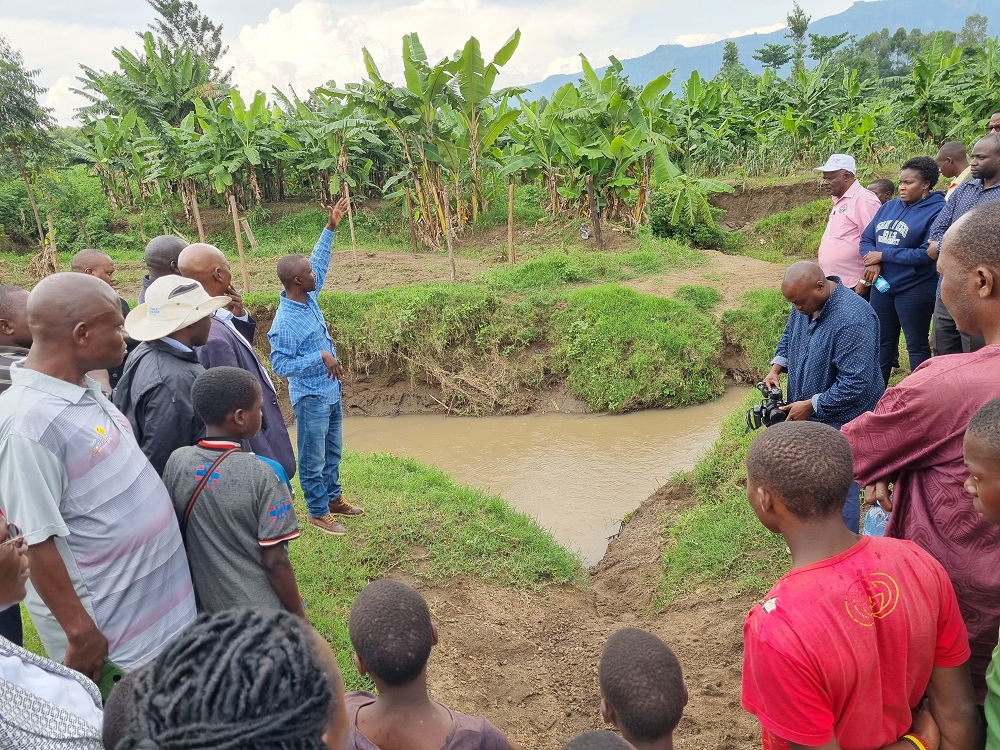
Government officials and humanitarian actors from Uganda and Kenya have concluded a three-day simulation exercise near the Mount Elgon ranges in Mbale, eastern Uganda. This exercise was aimed to test and validate Standard Operating Procedures (SOPs) on cross-border disaster displacement. Its objective was to offer pragmatic guidance for the two countries on improving collaboration in preparation for, and response to, sudden-onset hazards such as floods and landslides, which occur frequently in this region.
The exercise was conducted under the joint efforts of the Inter-Governmental Authority on Development (IGAD), the Platform for Disaster Displacement (PDD), the International Organization for Migration (IOM) and the governments of Uganda and Kenya. It forms a part of a project funded by the Migration Multi-Partner Trust Fund (MPTF), as well as support from the Swiss Government, striving to enhance preparedness and operational readiness of central and local governments in the IGAD region for cross-border displacement following disasters.
The simulation exercise in Mbale succeeded a similar one in Moyale on the Kenya-Ethiopia border earlier in May. These landmark exercises were the first of their kind in the IGAD region, one of Africa’s most vulnerable regions to climate variability and change. The IGAD region comprises Kenya, Uganda, Ethiopia, Djibouti, Somalia, South Sudan, Sudan, and Eritrea. It is situated in sub-Saharan Africa, where 7.4 million internal displacements by disasters were recorded in 2022, the highest figure ever reported by the Internal Displacement Monitoring Centre (IDMC) for the area.
“Traditionally people look at conflict as a cause of people fleeing, but there is a tendency to overlook disaster situations as a driver of displacement,” says Atle Solberg, head of the Geneva-based PDD Secretariat.
One reason for this is an assumption that disaster displacement is short-lived. But, adds Solberg, this is not always the case, with climate change triggering more intense and more frequent disasters. These can prevent displaced persons to safely return home, leaving them in vulnerable situations for longer periods of time.
Article 16 of the Protocol on Free Movement of Persons in the IGAD region urges Member States to admit one another’s citizens displaced in the context of disasters. Member States are further requested to agree on laws, policies and procedures for protecting cross-border disaster-displaced persons. Hence, the exercise ultimately aimed to also support operationalization of Article 16.
Through role-plays and hypothetical disaster displacement scenarios, participants in Mbale worked through concrete guidelines on entry and reception, registration and stay, and assisted return or extended stay. They proposed slight amendments to the procedures, which the organizers will integrate to finalize the SOPs.
According to Ambassador Lucy Daxbacher, Head of the IGAD Mission to Uganda, there is every reason for optimism about the SOPs.
“There are robust institutions in all our Member States that support disaster management, [but] they would require further assistance to strengthen their functionality and performance in the case of national disasters. What was lacking was a policy/legal framework for assisting disaster victims when they cross international borders. That has been provided by Article 16,” she said. She added that these institutions need more resources and technical assistance, for instance on statistics and data management.
Representing IOM, Ronnie Omoding, the focal person on Migration, Environment and Climate Change, underscored the importance of partnerships in addressing climate change and associated disasters. “The solutions require cooperation and intersectoral policy dialogue and policy coherence, but also inclusion of various stakeholders,” he said
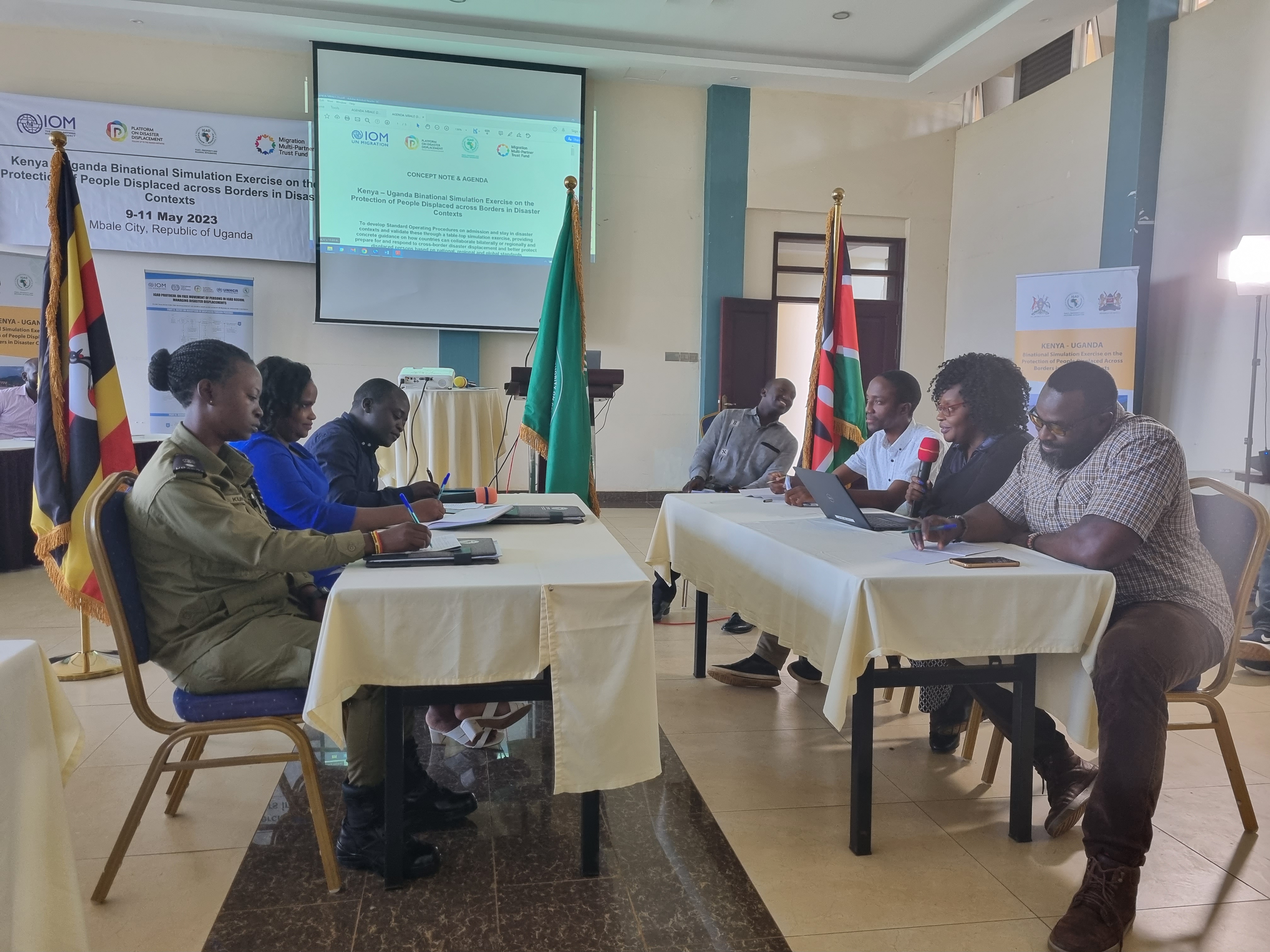 The Kenyan delegation was led by Bungoma County Commissioner Thomas Sankei, who said: “This Workshop provided us with an opportunity to not only test the SOPs on Admission and Stay, but also to deepen our integration, and widen our bilateral cooperation towards reducing existing disaster risks, and preventing new risks, in the context of disaster displacements, and other issues.”
The Kenyan delegation was led by Bungoma County Commissioner Thomas Sankei, who said: “This Workshop provided us with an opportunity to not only test the SOPs on Admission and Stay, but also to deepen our integration, and widen our bilateral cooperation towards reducing existing disaster risks, and preventing new risks, in the context of disaster displacements, and other issues.”
Captain Stanley Osaba, the head of the National Emergency and Operations Coordination Centre (NECOC), represented the Uganda Office of the Prime Minister. Closing the exercise on 11 May, Capt Osaba expressed his aspiration that the SOPs would be soon finalized and endorsed by the participating countries. He further voiced his hope for all Member States to ratify the IGAD Free Movement of Persons Protocol soon.
Useful Links
For more Information, please contact:
For IGAD: Mujib Jemal: Mujib.jemal@igad.int
For PDD: Timo Schmidt: timos@unops.org
For IOM: Noora Makela, nkmakela@iom.int
Learn more about the Migration Multi-Partner Trust Fund














